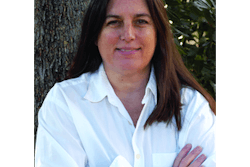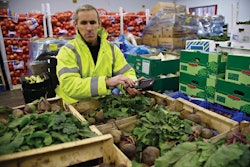More than 680 farmers in Bahrain are set to benefit from a new initiative that aims to boost the country's food security.
Eight specialist centers will be introduced to help train them in how they can use modern technology to improve their yields. Each will feature laboratories, a seed plantation chamber, sorting and chilling warehouse, feeding pump rooms and fresh water production units.
The first phase of the project, costing BD1.5 million, will take between six and 11 months to complete, said municipalities and urban planning affairs Minister Dr. Juma Al Ka'abi. He was speaking after laying the foundation stone for the project at the Hawarat A'ali Agricultural Development Centre in Salmabad.
Guests at the launch included ministry officials United Nations Industrial Development Organization (Unido) director-general Dr Kandeh Yumkella and investment and technology promotion office head Dr Hashim Hussein.
Arab Centre for Entrepreneur Training chairman Shaikh Ibrahim bin Khalifa Al Khalifa, National Initiative for Agricultural Development secretary-general Dr Wahid Al Qassim and inJAz Bahrain chief executive officer Shaikha Hessa bint Khalifa Al Khalifa also attended.
Shops will also be provided to market the products grown by entrepreneurial farmers, at a cost of nearly BD1m.
A third phase of the project will involve the construction of greenhouses, the cost of which will be open to private sector investment, said Dr Al Ka'abi.
"This initiative includes providing support to small farmers, agricultural guidance, tools, training on modern technology, loans and funds to improve productivity, protecting natural resources, agricultural investment from the private sector and building capacities in agricultural development," he said.
"We hope it will effectively contribute in enhancing the sustainable agricultural development as a result of joint co-operation among the private and public sector and the specialized regional organizations, with the objective of building on human capabilities in agricultural development."
The cost of the "incubator" centers will be supported by Unido and Eskan Bank.
"The market place and the incubators will be launched at the same time, as without the market place, the formula will not be complete," said Dr Al Ka'abi.
"This is stage one for the moment and we are now focusing on this area to face any challenges we may have. There are around 680 farmers in Bahrain and I hope that all will benefit from the new technologies.
"Around 60 per cent of farmers are still using traditional methods of irrigation and once they are trained in using modern and environmentally sustainable technologies they can increase their productivity."
Speaking at the event, Dr Yumkella said the days of cheap food were over and communities must learn how to develop their own food produce.
"To put this project into a global context, by 2030 we need to increase the global food production by 50 per cent, and by 2050, by 75pc," he said.
"As we increase food production, so will the global population, but climate change will devastate many places which are currently used for food production, so we cannot take the Earth or the environment for granted.
"However, if we continue in this way, with pollution and high use of energy, we will damage the process and there will be a real scarcity of raw materials and foods in the next few decades."
For more information, contact: [email protected]



















